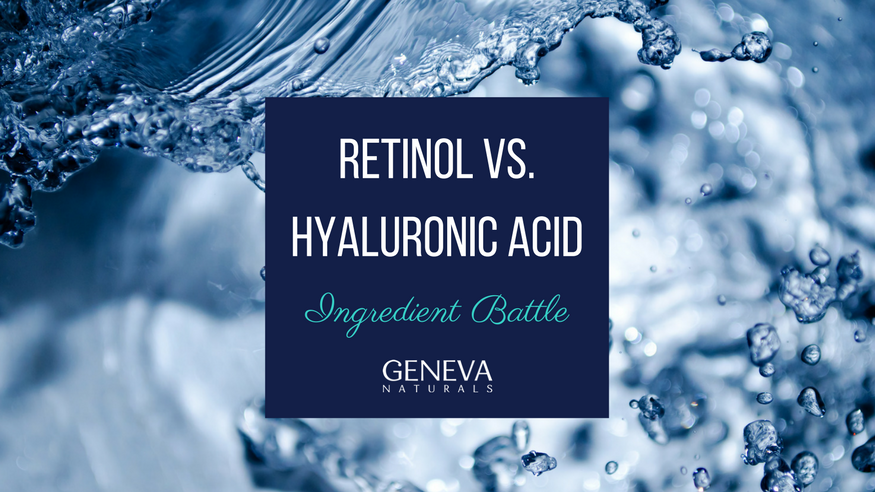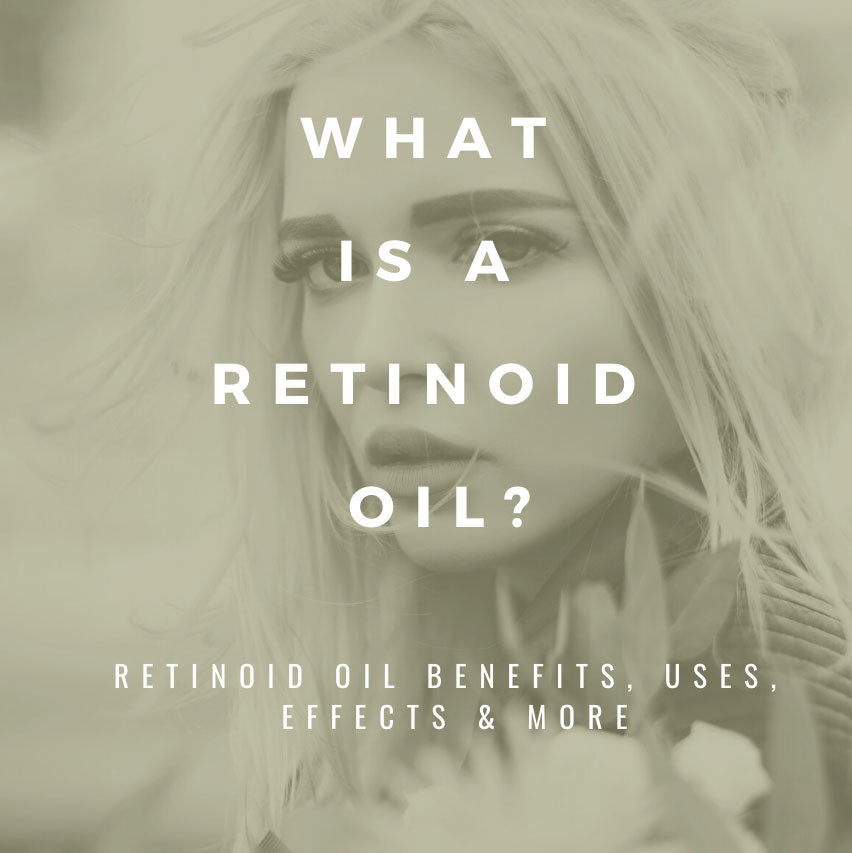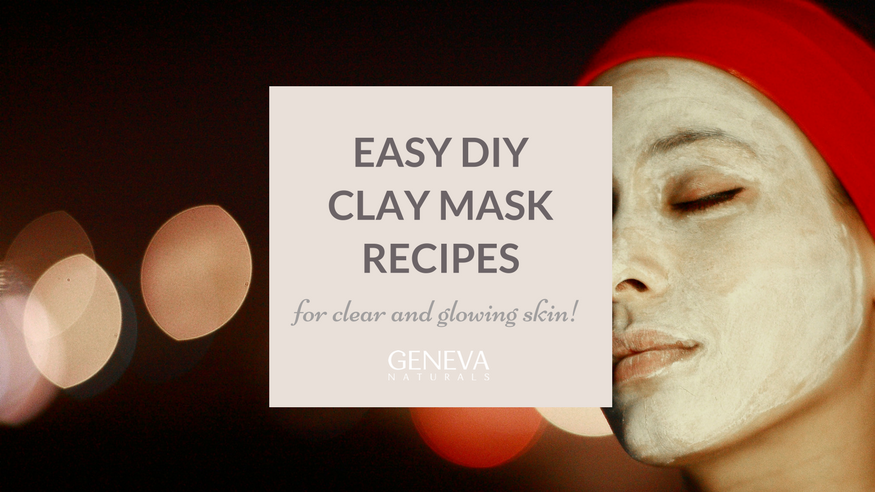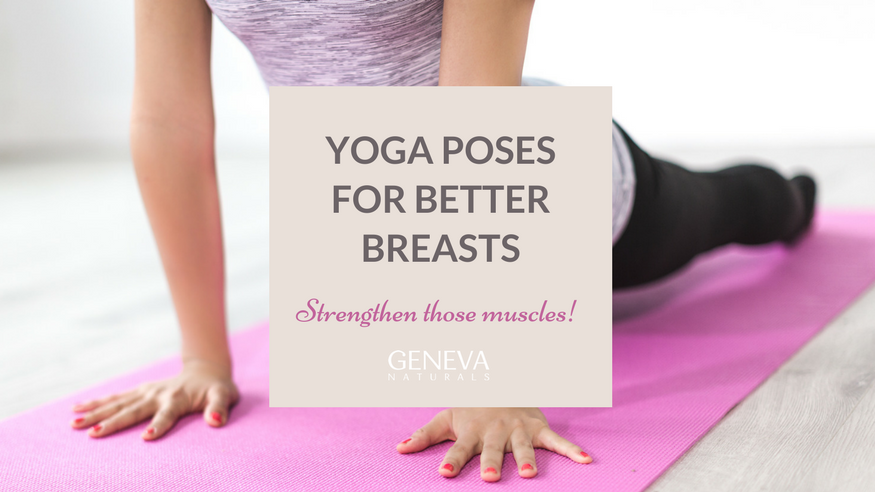Ingredient Battle: Hyaluronic Acid v. Retinol

Hyaluronic Acid
What is it?
Hyaluronic acid is a natural compound found in highest concentrations in the fluids of the joints and eyes. It is a clear, lubricating substance that plays an important role in the health of the skin. Medicinal forms of hyaluronic acid are made by bacteria in a lab or extracted from rooster combs.
Why do people love it?
Many people have a goal of maintaining their ageless skin and natural beauty. Hyaluronic acid helps keep the skin supple and youthful. However, it isn’t limited to skin care. It also helps reduce joint pain and dry eyes.
Benefits
Lubricates Joints
Gears work best when lubricated – so do your joints. The joints in the body are lubricated with synovial fluid. It helps the joints absorb shock and allows the bones to glide against one another. Hyaluronic acid is an important ingredient in synovial fluid. Degenerative joint diseases and loss of hyaluronic acid often cause tenderness and pain. Many people use injections to replace hyaluronic acid and treat osteoarthritis and relieve joint pain.
Reduces Wrinkles and Dry Skin
As the body ages, the skin loses collagen and elastin, which give the skin its firmness and allow it to stretch and bounce back to its original shape. The loss of collagen and elastin cause the skin to thin, and thin skin doesn’t hold enough moisture to keep the skin plump and firm. Eventually, the skin begins to sag and wrinkles form. Hyaluronic acid is a naturally occurring humectant, or substance that absorbs water, that can hold up to 1,000 times its weight in water. It delivers water to the skin and holds it there, which reduces skin sagging, wrinkles, flakiness, and dry skin.
Provides Relief for Burns and Wounds
Since hyaluronic acid is a humectant, it isn’t too surprising that it can provide relief for sunburns. Hyaluronic acid works much like aloe to help replenish moisture in the skin. It also locks in moisture, making it beneficial for treating cold sores, bites, burns, and other wounds.
How to use it?
Though hyaluronic acid is produced naturally in the body, its production decreases as you age. Fortunately, there are many other sources of hyaluronic acid. You can find it in many skin care products such as anti-aging creams, facial masks or moisturizers. Hyaluronic acid can also be taken by mouth or injected to help treat joint pain.
Want to know more about the anti-aging benefits of hyaluronic acid? Watch this video from beauty guru Brianna Stanko!
Retinol
What is it?
Retinol is a derivative of vitamin A that is turned into retinoic acid when it enters the skin. On a molecular level, it repairs the skin and helps to produce collagen.
Why do people love it?
The answer is simple – it has astonishing benefits for the skin. Retinol has been used for many years to cure a variety of skin conditions.
Benefits
Acne Management
Acne is a common skin condition that often includes pimples, whiteheads, and blackheads. It occurs when hair follicles become clogged with oil and dead skin cells. Individuals with moderate to severe acne may find retinol to be helpful in reducing acne outbreaks. Retinol helps prevent dead skin cells from clogging the pores and may reduce acne scars.
Brightens Skin Tone
Sun exposure and aging can cause uneven skin tone and brown spots on the skin. Retinol helps skin cells increase the production of new skin cells, causing old skin cells to slough off. With the old skin cells out of the way, the new skin cells produce a brightened, smooth skin tone.
Reduces Wrinkles
Wrinkles form when collagen degrades and the skin loses its firmness. Retinol reduces the appearance of fine lines and wrinkles by slowing the breakdown of collagen. It improves the skin’s elasticity and strengthens the skin by thickening its deeper layer.
How to use it?
Retinol is often used in various skin care products, especially those designed for fighting the signs of aging. These skin care products may include moisturizers, facial masks, and creams. Retinol can also be used in the form of a prescription like Retin-A or Renova.
To maximize the benefits of both Retinol and Hyaluronic Acid, check out our Anti-Aging Retinol Cream. Apply every night before going to bed to make up fresh and hydrated!
Also in Geneva Naturals

What Is A Retinoid Oil? Retinoid Oil Benefits, Uses, Effects & More

DIY Clay Mask Recipes for Clear Skin




